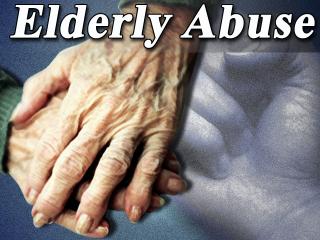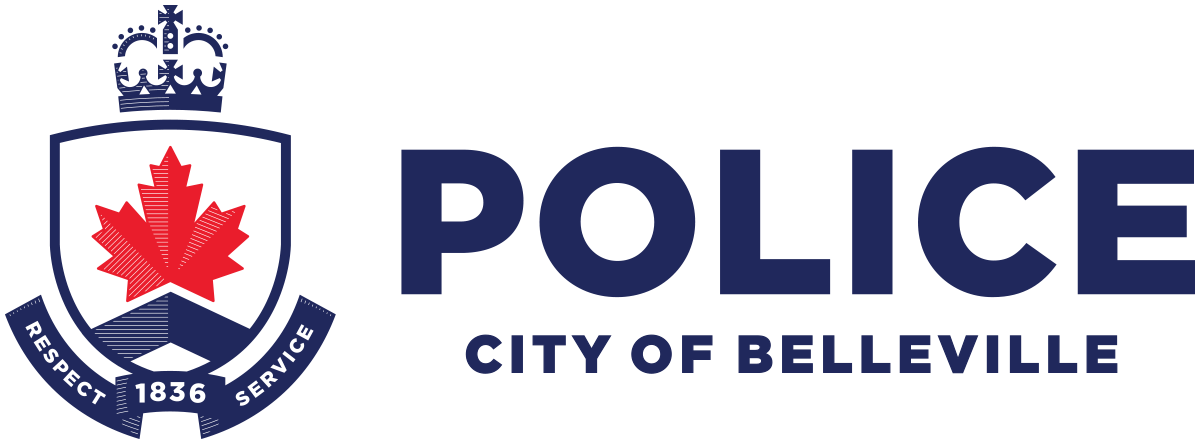
Elder Abuse
Belleville is one of the safest places in the world. To help make it safer, the Belleville Police Service has compiled this information to assist and inform residents of the Quinte Area, and those visiting our Web site from elsewhere in the world.
Following these suggestions will not eliminate abuse and crimes against senior citizens, but an awareness of these crime prevention pointers together with your own common sense, can help safeguard you or a loved one from harm.
WHAT IS ELDER ABUSE?
Elder abuse occurs when a person in a position of authority or trust harms a senior citizen. Such a person may be a member of the victim's family, a neighbor, nurse, or some other caregiver. It may also be a person in some other position of power, such as a landlord, the executor of a will, or someone with power of attorney over the victim's affairs.
Elder abuse may be physical, financial, or neglect. For example, a child or caregiver may push, hit or threaten the victim. A person with Power of Attorney may abuse their position, and use the finances for their own personal use and gain. Children may abuse their parents by endorsing a cheque without consent. Another example of elder abuse is neglect, where the victim is refused food, medical care, over-medicated, or forcibly isolated.
REASONS WHY ABUSE IS SELDOM REPORTED
Elder abuse is seldom identified and rarely reported to police. For this reason, it is referred to as a "hidden crime." Victims may not report incidents of abuse, because:
- They feel betrayed by the abuser, and feel ashamed of their mistreatment by family members or loved ones.
-
They feel embarrassment that they are in the position of being a victim.
-
They believe the police or other agencies can't help.
-
They are afraid of being institutionalized.
-
They are unaware of their rights.
-
They are afraid of what will happen to the loved one abusing them, or what will happen to them once the person who had power over their finances or other aspects of their life is gone.
Those who find that someone they know is being abused don't report it because:
-
They don't want to get involved
-
They aren't aware of what can be done
-
They aren't aware of the signs and symptoms of abuse
WHAT YOU CAN DO TO PREVENT ABUSE
The Belleville Police Service will investigate and lay charges where appropriate against abusers. Victims are offered and provided with counseling and assistance. By reporting abuse, you are combating the problem.
You can also combat elder abuse before it happens, by following some of the following
- Familiarize yourself with your spouse's tasks and responsibilities. For example, learn how to write a cheque, balance a cheque book, what bills you pay and how to read the invoices. This ensures continued independence should anything happen to your spouse.
- Learn what your rights are. Regardless of whether you're living in a private residence or an institution, it's important that you understand your rights, and ask for advise.
- Plan ahead. Ensure that a Power of Attorney exists for your finances, so that you're prepared if you ever become dependent. Before signing a Power of Attorney, check with a lawyer or public trustee.
- Make sure others can verify you're being taken care of. Try to appoint an Executor to your Will and/or someone with Power of Attorney that is accessible by other family members and all parties mentioned in the Will. This will help to ensure that others can check to see that you're being taken care of financially, and have gotten everything mentioned in the Will.
- Have pension cheques deposited directly into your bank account.
- Increase the amount of training your caregiver currently has.
- Be cautious about moving in with someone, or having someone move in with you. Consider possible problems, like lack of space, stairs, noise, loss of control, etc.
- Be cautious about permitting adult children back into your home to live (especially if those children have a history of drug, alcohol, financial or psychological problems)
The Ontario Network for Prevention of Elder Abuse www.onpea.org provides a number of toolkits and information regarding elder abuse.
Be aware of services available in your area, and take advantage of the services you need.
Elder Abuse - PRINT



